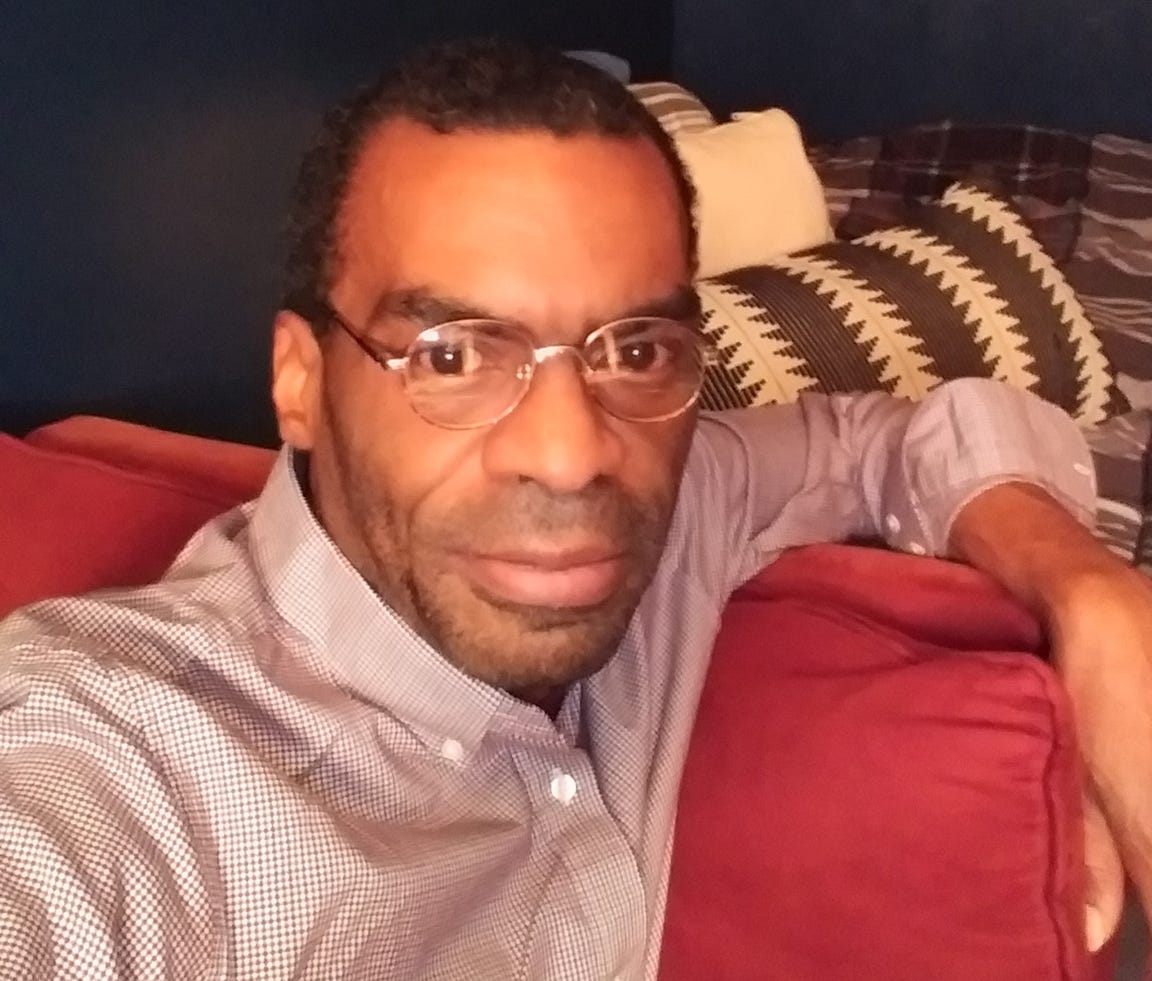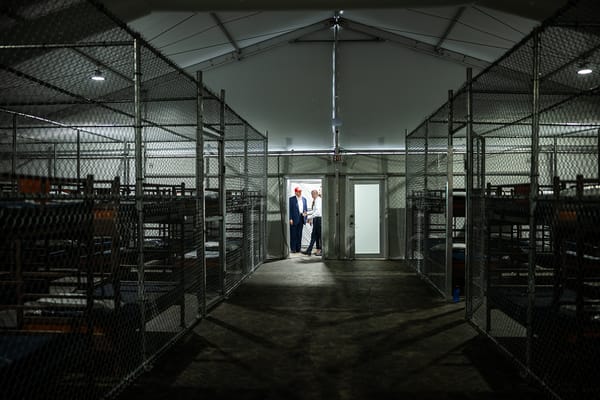Hmm Weekly for December 22, 2020
It was the shortest Tuesday of the year


CONTRIBUTING WRITERS DEP’T.
How Did You Sleep Last Night?
By Lori Teresa Yearwood
A YEAR AGO on Christmas Day, Michael Anatole attempted to sleep in a homeless shelter in downtown Manhattan. It was a room filled with 70-some men in a space that stank of unwashed clothes and body odor, and it constantly erupted with the cacophonic tumult of street life crammed inside one dimly lit dormitory-style room.
Sleep came. But only enough to survive, Anatole said.
“There is sleep that just allows you to continue breathing as a human,” he told me, his voice filled with the resolve that carried him through those long nights and tired days. “And there is the sleep that is restorative.”
“Every night was a bad night there,” Anatole said. “I hardly got more than four hours of sleep every day.”
This year, though, is drastically different. Anatole—who worked full-time the entire seven months he was homeless—has thrust himself into the stratosphere of the housed. In this much more mundane realm, the 56-year-old Anatole has his own bedroom in a shared, three-bedroom apartment that he has been renting with two other working men since June
Every night, starting at around 9, Anatole prepares himself for sleep by engaging in the most ordinary of human rituals, the types of activities that he so desperately missed when he was homeless.
He puts a scoop of vanilla or strawberry ice cream in a white ceramic dish he bought at a local dollar store. He carries his treat into his bedroom. He shuts the door. It’s a hugely important moment, the shutting of that door.
“Being able to close my door and not have anyone else inside my environment other than me—that is peace,” Anatole told me.
Then he sits on the edge of his bed and eats his ice cream. Slowly, savoring its cold sweetness.
“No TV, no music. And all is right with the world because I am enjoying my ice cream alone,” he said.
A few times a week he replaces the ice-cream with caffeinated coffee, which, believe it or not, he said, helps to clear his lungs but does nothing to hamper his ability to sleep.
“It’s just plain espresso coffee that I make in a stovetop maker that percolates,” Anatole said. “Sometimes I drink that. I really enjoy it.”
This carefully cultivated peacefulness is supported by considerate housemates, one of whom is the owner of the sixth floor co-op apartment that adheres to rules that keep the noise on 145th Street in Harlem outside the building's brick confines. The other housemate is a successful food-deliverer who sometimes doesn’t make it home until 11 p.m. but is careful to walk quietly and directly through the apartment and into his own bedroom.
By that time, Anatole has taken his medication for the chronic obstructive pulmonary disease that has put him in intensive care twice this year alone, he said. He’s also likely watched Jeopardy! or The Big Bang Theory on television, or read. He’s read Shakespeare repeatedly; “the slings and arrows of outrageous fortune,” he sometimes said when referring to his tough times.
These days sleep comes in uninterrupted blocks of six, seven, even eight hours at a time.
“My sleep is a hell of a lot better now,” Anatole said with a laugh. Suddenly, we shared a mutual acknowledgement of the incredible superpowers that it took for him to make it through that time in his life, and we laughed together.
“I also do believe that if you aren’t looking to get out of that situation as soon as possible,” Anatole said, “you mentally start to degrade and your social skills start to erode. Your analytic skills also decline.”
Research on sleeplessness bears witness to Anatole’s statements, showing that sleep deficiency is an important risk factor for a wide range of adverse health outcomes, including high risks of cardiometabolic diseases, mental disorders, cancer and mortality in general. But even without such drastic consequences, the ramifications of sleep deprivation can make it impossible for someone to regulate emotions and successfully navigate life, still more studies reveal.
Still, Anatole held onto his job gathering essential data for the city’s computer systems. Born and raised in New York, he graduated from Pace University in 1985 with a bachelor’s degree in management information systems, he said.
He makes $45,000 a year in his current position, a job he’s held for six years, he said.
“I kept telling myself, ‘You’re going to get out of here, you’re going to get out of here—this is not something that is going to be permanent for you,” Anatole said about his time in homelessness.
Though he said he doesn’t want to go into the personal details about what sparked his fall into the life of the unhoused, he did say that he was depressed and that the depression played into a spate of absenteeism from work, causing loss of pay. His then-landlord locked him out of the room he was renting because Anatole owned approximately $1,000 in back rent.
At first, Anatole lived in the noisy day-to-day shelter that smelled constantly of funk. Then, in January, he was accepted into a program at the New York Bowery Mission where he paid 20 percent of his income to stay at the shelter. That place was a palace compared to the first shelter, Anatole said. But it was an environment that was far from conducive to sleep.
“There were definitely noises in your environment that were not of your own,” he said. “People getting up in the night. You could hear wrappers opening up and soda cans popping open.”
There was one man, who every night after lights-out at 10, “decided to clean the bathroom from top to bottom—every shower, every toilet. Everything he had, he decided had to be scrubbed with as much bleach as he could possibly find—to the point where the entire dorm room would stink of bleach.”
When the man wasn’t cleaning, he was rearranging the plastic bins in which he stored his life.
“He had one of those halogen high-beam flashlights. He would hang it up by his bunk and flash it,” Anatole said.
In those months of shelter sleep, Anatole felt like he was thinking through a kind of fog. He also remembers that he felt a propensity toward anger that he hadn’t felt when he was well rested.
“You don’t feel sharp and you don’t feel present in your interactions,” Anatole said. “On any given day, your mind just wanders and drifts—and you may not even be conscious you’re doing it.”
Despite it all, Anatole saved every cent he could—he eventually stashed away five thousand dollars, he said—to move in June into the apartment where he lives now. Given the costs of renting in New York City -- the average cost of a studio rental there is $1,889 per month, according to a 2019 article from Smart Asset.
Anatole got lucky and found his home for $975 a month on Craigslist. In the past two months, he’s felt so secure, Anatole said he hasn’t even had to take melatonin to fall asleep.
“My life is about being normal now,” Anatole said. “I find that peaceful. My problems are like everyone else’s problems. I find that a comfort.”

Another Week, Another HMM WEEKLY
GOOD MORNING! This is the latest HMM WEEKLY, successor publication to HMM DAILY, distributed via SUBSTACK, a newsletter delivery and reading platform.
We offer paid subscriptions for full access to HMM WEEKLY posts, with intermittent postings available free as we see fit.
We urge you to spread the word about HMM WEEKLY, and we encourage you to correspond with us! Email hmmweekly@substack.com. Thank you for reading.

THOUGHT DEP’T.

Do you have a thought? Send it to hmmweekly@hmmweekly.com.

REMINDER DEP’T.
THE SOPHIST is here to tell you why you're right. Send your questions to AskTheSophist@hmmweekly.com, and get the answers you want.

VISUAL CONSCIOUSNESS DEP’T.
A visit to the CVS

YOU CAN FOLLOW hmmweeklygram on Instagram.

SANDWICH RECIPES DEP’T.
WE CONTINUE OUR presentation of select sandwich recipes, culled from the Public Domain, with items from What To Eat, copyright 1924, by David V. Bush, author and publisher.
We cannot have perfect health by having denatured food, substitutes of any kind, drying and canning foods devitalize them. By eating these, we are drying up our own physical vigor and “canning our own health.”
Peanut Butter Sandwiches
Cut green olives fine, mix into peanut butter. Work in mayonnaise and spread.
Cheese Sandwiches
Work into cream cheese or American cheese, cream mayonnaise dressing. Arrange lettuce leaf on thin slices of whole wheat bread. Then spread with cheese filling.
Tomato Sandwiches
Mix into sandwich butter* any kind of dressing. Spread on thin slices of whole wheat bread, then add thin slices of good, firm tomatoes.
* Place butter in pan, heat until soft, but not melted. Beat until of consistency to spread easily.
If you decide to prepare and enjoy one of the above items, kindly send a picture to us at hmmweekly@substack.com.

HMM WEEKLY IS written by Tom Scocca, editor, and Joe MacWholeWheatBread, creative director. If you enjoy Hmm Weekly, please let a friend know about it! If you're reading this because someone forwarded it to you, we invite you to sign up for a copy of your own right now. Thanks for reading, and any time you want, email us at hmmweekly@substack.com.




